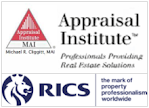A triple net lease is a lease arrangement where the landlord passes through property expenses to the tenant. The term pass-through is regularly used in the real estate leasing environment and just means an expense item that is being passed on from the owner/landlord to the tenant. It can be passed through in a yearly annual fee or the actual specific bills for each pass through item can be handed over to the tenant to pay directly to the billing entity (i.e. property taxes, insurance, etc.). If the building is a multi-tenant property than the pass-through should/will be based on a pro-rata share of the tenant’s percentage of occupied space in relation to the entire building/property. Example – If a tenant occupies 10% of a building then their pro-rata share of the expenses will be 10% of the total expenses being passed through. The term “Tripe Net”, also known as “Net Net Net” or “NNN” are all used interchangeably and typically mean that certain/specific property related expenses are passed through to the tenant. Under this type of lease the tenant will be responsible for the agreed rental rate, as well as additional property related expenses. The primary expenses typically passed through in a Triple Net lease are property taxes, building replacement insurance, and property maintenance. So the term Triple Net or NNN, means the rental rate is net of (or does not include) three expense items, hence Net Net Net. So Triple Net means the rental rate is net of property expenses, net of property insurance, and net of maintenance and repairs – Net Net Net.
Example:
NNN Lease Includes:
Negotiated/Agreed Base Rent+ Property Taxes (Pro-Rata Share)
+ Property Insurance (Pro-Rata Share)
+ Maintenance & Repairs (Pro-Rata Share)
= Total Lease Costs/Responsibility of Tenant
Triple Net Lease (with real $) Example:
$15.00/SF – Base Rent+$2.00/SF – Property Taxes
+$0.60/SF – Property Insurance
+$1.00/SF – Maintenance & Repairs
= $18.60/SF - Total Lease Costs/Responsibility of Tenant
So a triple net lease passes through the cost of certain property expenses, as well as the possible risk of future increases or decreases of those expenses over the term of the lease to the tenant. Landlords typically prefer this lease structure as it helps limit uncertainty/risks related to property expense increases and many large property owners (REIT’s, institutional investors, etc.) lease property to tenants on a triple net basis or similar terms.
Just as the triple net lease typically refers to exclusions of three property expense categories, the term double net or single net refers to the exclusion or pass-through of two property expense items (Double Net or Net Net or NN) or a single property expense item (Single Net or Net or N). There are also other ways to refer to leases/lease expense sharing such as a Net Lease, Modified Net Lease, Gross Lease, Modified Gross Lease, Full Service Lease, etc. Each of these various categories refers to how expenses are classified/paid for/shared between the landlord and tenant. Some are utilized interchangeably and may vary from region to region based on local terminology and expectations within various markets around the county. When contemplating entering into a lease, understanding how the property expenses are being paid for/shared is an important item and hiring an attorney to draft a lease or provide clarification and interpretation of a lease is highly recommended.
As a business owner/tenant or prospective tenant understanding the structure of the lease agreement and total cost (base rent and expenses) of a lease is important business decision. Some leases on the surface may look cheaper but when factoring the various pass through expenses end up costing more than other leases.
Our firm performs comparable rent analysis and studies, comparable expense analysis, total lease cost analysis for a single year or multi-year lease contracts, leasing versus owning cost analysis. We also provide negotiation services for tenants and/or landlords with market based evidence/support of our recommendation used as a basis for negotiation or renegotiation of a lease. For all non-legal lease related questions, we are available to assist so please feel free to contact us. We can also recommend an attorney to help with drafting and/or legal interpretation of a lease.
Cliggitt Valuation, Inc.
Real Estate Analysts & Advisors
Based in Central Florida
Lakeland, Winter Haven, Bartow Commercial Property Specialists
863-661-1165
www.cliggitt.com

No comments:
Post a Comment